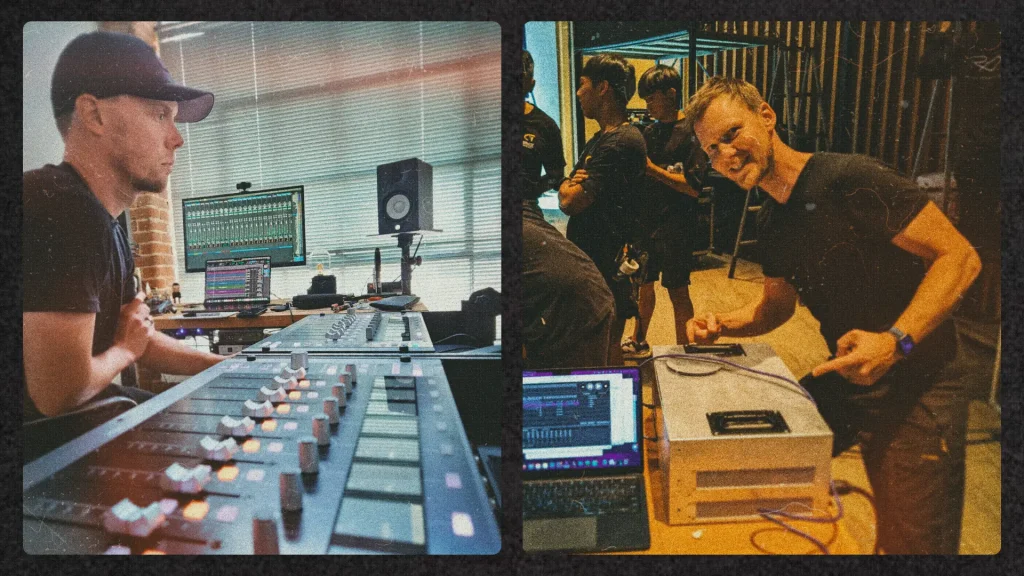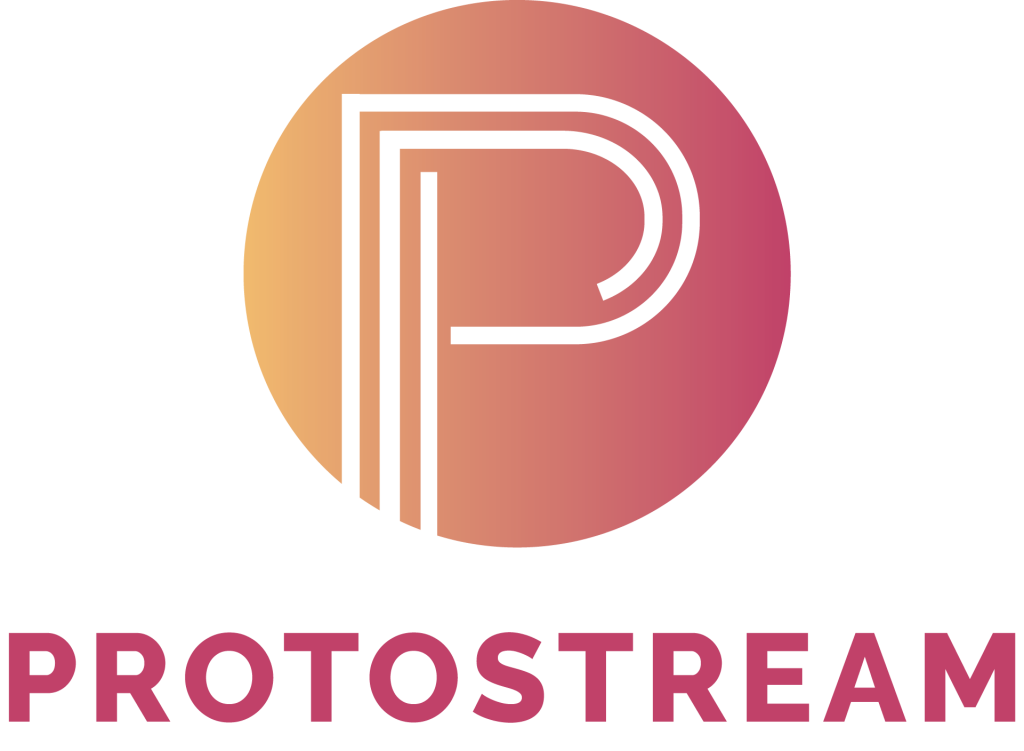
How Protostream Engineers Plan for the Unknown
If you’ve spent enough time in live production, you know the truth: the plan is just a suggestion. A roadmap, maybe. But rarely reality. Gear shows up late. The PA’s an inch off. Suddenly the client wants three more wireless mics and a lectern. In another room. In twenty minutes.
It’s why Protostream engineers don’t just prep for the show. They prep for everything around the show. We recently caught up with Chris and Dan, two of our longtime engineers, to talk about the habits they’ve picked up and the hard lessons that keep their gigs on track, even when the unexpected hits.
“Assumption is the fast track to making a gig way harder than it needs to be,” Chris says. “I’ve seen people in over their heads, TDs running on fumes after nine back-to-back shows, or a crew that’s never touched a space like this. Don’t assume. Ask questions. Jerry Maguire it. Help them help you.”
Dan’s on the same page. “Ask all the questions. Even if it feels like too many. Because nothing’s worse than realizing the client expected something you never talked about. Clarification saves you every time. And yeah…labels on everything.”
Over time, the little things add up.
For Chris, that means staying focused on what matters. “It’s always great to catch up with old friends and familiar faces on site, but I’m here to work. As an A2, I’ve got important responsibilities, and the last thing I want is to be off my game when I’m putting a mic on a CEO.” It’s not flashy, but it’s part of showing up sharp.
Dan has a different kind of realism. “The PA is almost never in the ‘ideal’ spot. Ballrooms aren’t built for sound. They’re built for carpet and chandeliers. So you learn to make the most of what you’ve got. That flexibility is everything.”
Every engineer’s got their own mental checklist.
Chris expects longer cable runs, unpredictable SPL needs, and subpar coffee. Dan packs spares like it’s a religion. “Extra wireless, a couple wired backups hidden downstage, extra inputs… if something fails, you can’t go hunting. It has to be there.”
Chris has lived both sides, touring and corporate, and he’s quick to call out the differences. “Music moves fast. Dump trucks, load-in, line check, done. Corporate is…hurry up and wait. I’ve been ready to fly PA, and they tell me, ‘You’ll have your points in a few hours.’ So yeah, productivity might mean grabbing a coffee while rigging catches up.” Dan adds: “Touring bands still want analog splits, sub snakes, and talkbacks everywhere. Corporate? You’re lucky if there’s analog comm at all. Totally different worlds.”
What unites both engineers is a love for A2 work. “I love talking to new people and making them feel comfortable in stressful moments,” Chris says. “That interaction is the best part of the job.” Dan nods. “There’s something about getting the system built, the crew talking, and the PA tuned. It’s hands-on. It’s satisfying.”
Their advice for the next wave of engineers?
Ask. Listen. Learn. “Don’t oversell yourself, but don’t stay in your comfort zone either,” Chris says. “Watch how others work. Try things. See what sticks. And never forget: this is a people-first industry.”
Dan agrees. “Don’t be afraid to say you’re new. If you’re genuinely interested, people want to teach. And take every gig you can handle, bad shows included. They’re where you learn the most. And you’ll have some great stories for load-out.”
Experience also sharpens your instincts. “If a gig feels disorganized from the jump, it usually stays that way,” Chris says. “If getting information is like pulling teeth, or the answer is ‘we’ll figure it out on site’…prepare for chaos.”
Dan recalls a gig where that chaos hit hard. “I signed on as SE for a graduation show. Next thing I know, I’m PM, running camera fiber and directing students while striking the rig. Total curveball. And the takeaway? Lack of info is always a red flag.”
At Protostream, that’s exactly what we plan for.
Not because we expect things to go wrong, but because we know they might. So we build for the unknown. More cable. More inputs. More grace. Less ego.
Because when you plan well enough, the surprises don’t feel like disasters. They feel like part of the job. And if we’ve done our work right, nobody ever knows anything went off script. They just remember the sound was clean. The transitions were seamless. And everything just… worked.
